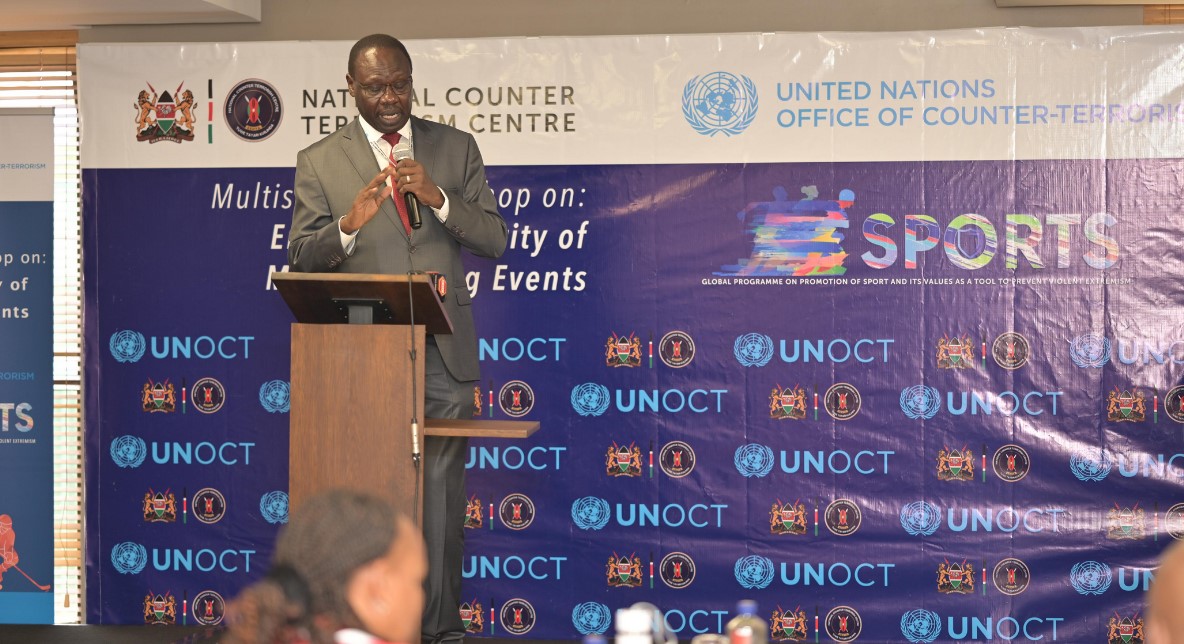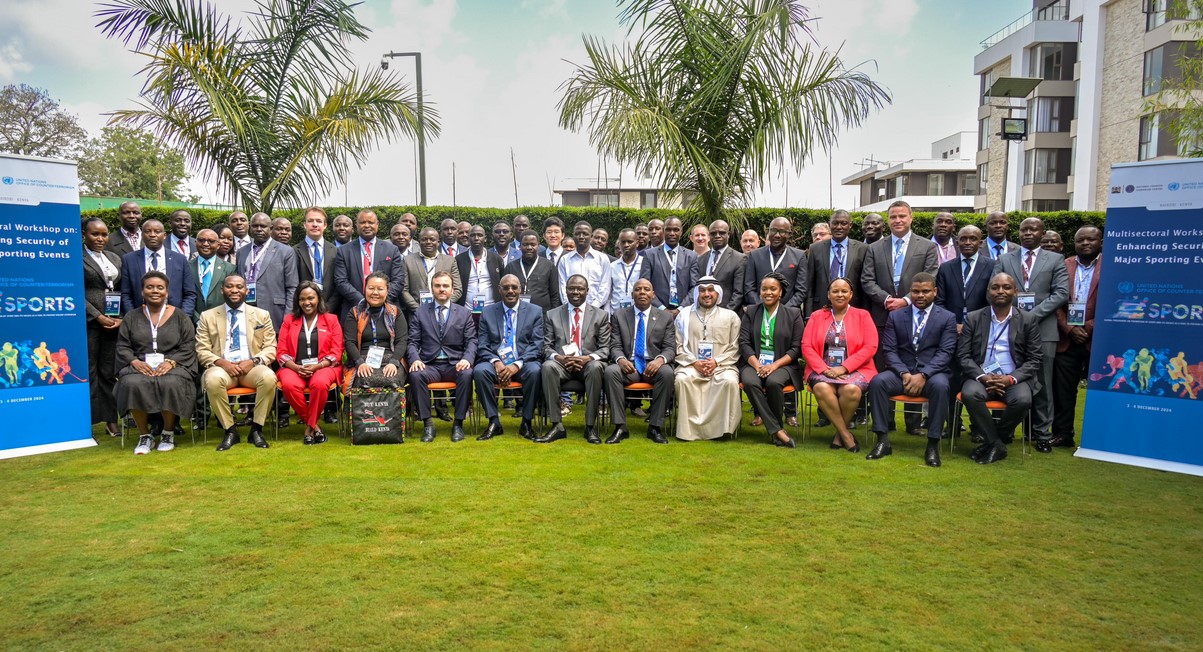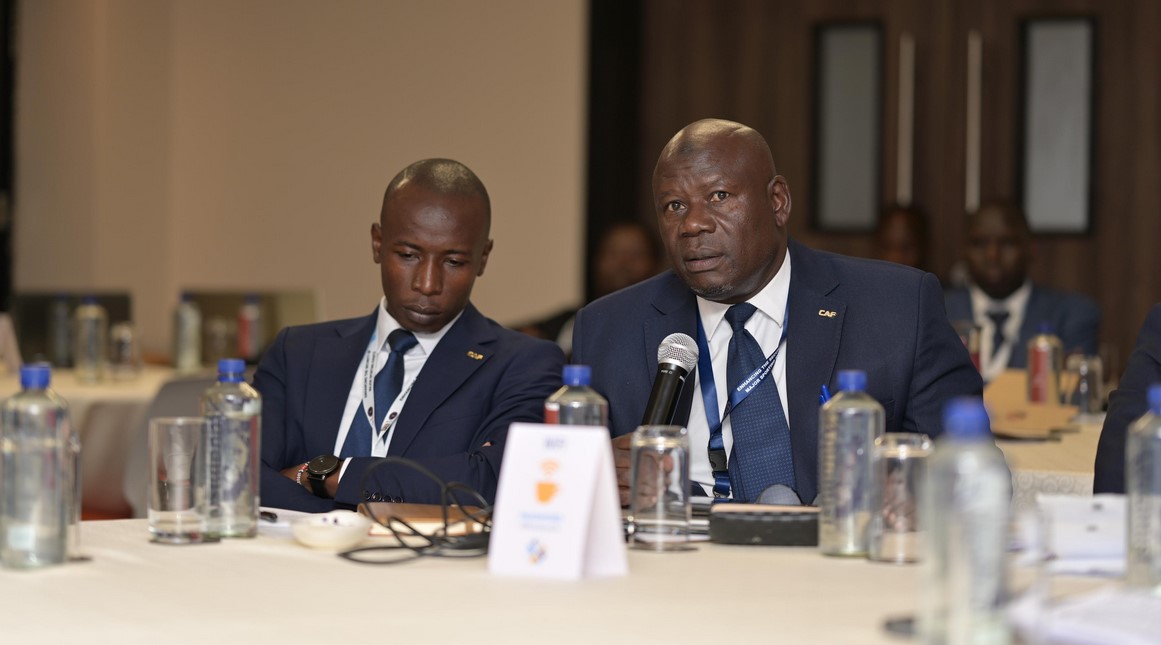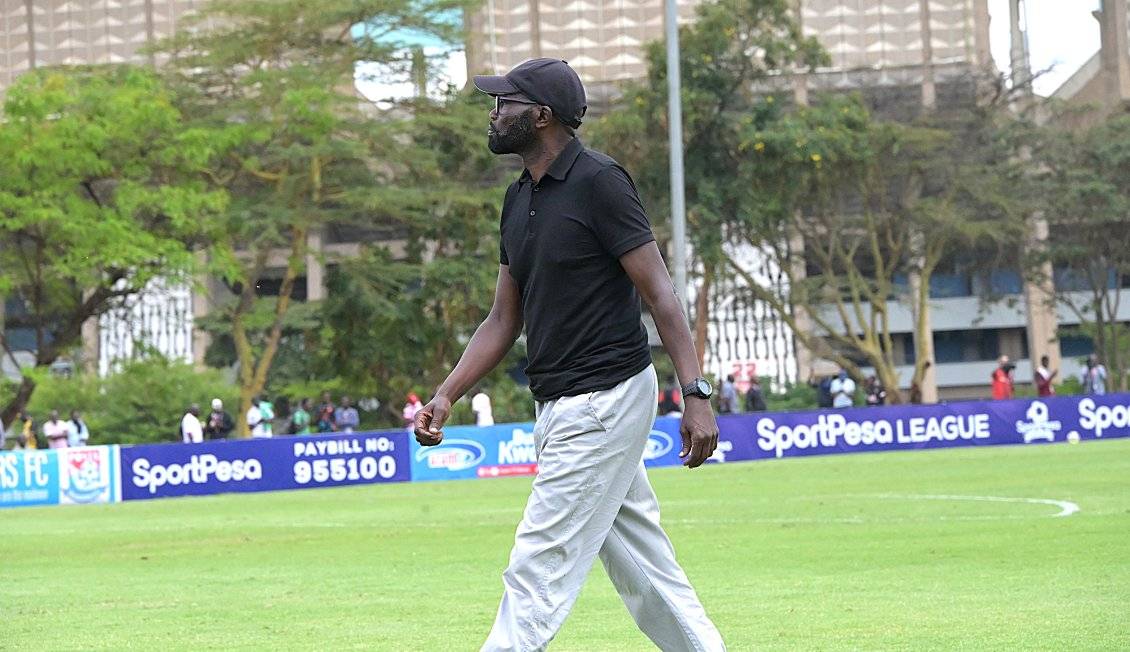Kenya, Uganda, Tanzania begin plans to ensure security during AFCON 2027

Kenya's National Counter Terrorism Centre Director Kibiego Kigen noted that planning early will help build the necessary capacity to secure the event
Kenya has embarked on a series of activities aimed at enhancing security before, during and after the Africa Cup of Nations (AFCON/CAF) games scheduled for mid-2027.
Amongst them is a high-profile two-day security meeting of security experts from the three host nations — Kenya, Uganda and Tanzania — that kicked off on Tuesday to plan the tournament's security arrangements for the event running between June and July.
More To Read
- CAF sets December 8 deadline for clubs to release AFCON-bound players
- MPs protest delays in 37 sports academy projects
- Kakamega Homeboyz storm past Posta Rangers 2–0 as AFC Leopards, Murang’a Seal settle for 1–1 draws
- Bungoma shock Gideon, Kayole shine, Ulinzi back on track as Kisumu–Zetech match abandoned
- Youth football comes alive in Eastleigh as Fazam Academy clinches Moi Cup title
- Somali referee Omar Abdulkadir Artan crowned CAF Best Male Referee 2025
The high-profile biannual football tournament attracts millions of fans from across the world who tour the host country to spectate and cheer their favourite teams as millions of others catch the matches on sports channels, presenting a significant security challenge for the hosts who have to embark on detailed security planning against criminal activities including terrorism.
The co-hosts are seeking to establish a comprehensive plan that will identify security gaps and develop mitigation measures within all the venues hosting the tournaments and their affiliated activities, bearing in mind that criminals, more so terrorists, tend to target major sporting events to spread fear.
The mitigation plan, which will be co-drafted by the three co-hosts counter-terrorism experts, and law enforcement officials with the support of international football agencies that have hosted or planned similar international football tournaments including FIFA, CAF, the UN Office of Counter-Terrorism, the UN Global Sports Programme, the African Union Counter Terrorism Centre (AUCTC), AU Sports Council and other stakeholders, will be reviewed as the need arises in the months preceding the event to ensure a successful tournament.
Kenya's National Counter Terrorism Centre (NCTC) Director Kibiego Kigen noted that planning early will help build the necessary capacity to secure the event and foster partnerships that will help it run successfully.
 Security experts and partners who are meeting in Nairobi to strategise on AFCON 2027' security arrangements. (Photo: Handout)
Security experts and partners who are meeting in Nairobi to strategise on AFCON 2027' security arrangements. (Photo: Handout)
Terror attacks
"Over time, extremist groups have been targeting major sporting events for terror attacks hence the need to protect them. It is very crucial that we begin now," he said.
He noted some of the major sporting events that have been targeted by terrorist groups in the recent past including the CAF 2022 and the Paris Olympics 2024.
"These terrorist organisations seek to instil fear, undermine public confidence and ultimately disrupt the safe and celebratory environment that these events evoke," he noted.
AUCTC's Systems Analyst Richard Apau noted that the threat of violent extremism in Africa has reached unprecedented proportions despite ongoing mitigation efforts with the number of attacks that took place in 2022 doubling in 2023.
"Last year, terrorist attacks in Africa more than doubled and associated fatalities increased by 68 per cent compared to 2022. Almost 3,000 attacks were recorded leading to the deaths of more than 15,000 people, civilians and local communities bore the brunt of these attacks
The situation has pushed five countries (Burkina Faso, Mali, Niger, Nigeria and Somalia) in the continent to the top 10 nations most affected by terrorism globally, hence the need for more proactive prevention measures.
"This year, almost 4,000 attacks have been recorded and these have resulted in the deaths of more than 16,000 people across the continent, this means that every day in Africa, close to 12 attacks take place and almost 51 people are killed," he added.
The meeting is, therefore, informed by the need to have adequate security in place to avert attacks that have taken place in other football events in the past.
"We in East Africa are surrounded by some of these (terror) groups. The threat, therefore, calls for joint and concerted efforts at a regional, continental and international level," Tanzania's NCTC Director Goyayi Mabula said.
 Some of the delegates attending the AFCON 2027 security arrangements meeting in Nairobi. (Photo: Handout)
Some of the delegates attending the AFCON 2027 security arrangements meeting in Nairobi. (Photo: Handout)
Fan violence
Some of the vulnerabilities that the teams will look at include fan violence which Uganda's NCTC's Deputy Commander Wilson Omoding noted if not checked could escalate and become an avenue exploited by terrorists to wreak havoc and instil fear amongst spectators and visitors like they did in the 2010 suicide bombings in Kampala that were targeting crowds watching the FIFA World Cup.
"While these events symbolise joy, competition and togetherness, they also present significant security challenges that we must address with unwavering commitment and dedication. Our region's rich sporting heritage and growing prominence make it imperative for us to develop tailored strategies that reflect the unique threat landscape that we face," he said.
He further noted that protecting critical infrastructure, high profile dignitaries, mitigating against public health risks, local politics and other dynamics that would interfere was key in the meeting's agenda including crowd control.
Mr Fred Ndegwa, the Head of Partnerships at NCTC, Kenya, noted that while the co-hosts share similar security challenges, the threat of terror remains dynamic and keeps mutating, hence the need for constant reviews and intelligence sharing.
"The intention here is to begin to organise security arrangements for AFCON 2027, to see what areas of capabilities we need to build over the next two years and how we can successfully plan for, deliver and protect the legacy of this very major sporting event," said Ndegwa.
Côte d'Ivoire hosted the last CAF tournament in 2023, through successful collaboration with its neighbours and Interpol.
Security planning for the tournament began a year before the official tournament's kick-off with the CAF Safety and Security Division conducting several site inspections and training workshops across the five host cities to ensure that they are up to the high standards required by CAF to host a safe and secure tournament.
"CAF has provided expert support services and so on our part, we have developed this concept and embarked on a series of training in supporting the organising committee by training all venue safety and security officers across the host cities, hotel security coordinators, training site security coordinators, escort commanders of all teams and match officials," CAF's Head of Safety and Security, Dr Christian Emeruwa, said at the time.
At the request of member states, Interpol provides specialised teams to assist national law enforcement in response to an incident or crisis resulting from a crime or disaster or in major events.
In Côte d'Ivoire, Interpol deployed a special intelligence support team that helped detect dangerous individuals at border checkpoints and assisted the local police in their local operations.
Noting that Côte d'Ivoire is located near the Sahel region where extremist terrorist groups often clash, one of Interpol's key roles was working to prevent spillover into Ivory Coast during the tournament.
Top Stories Today













































